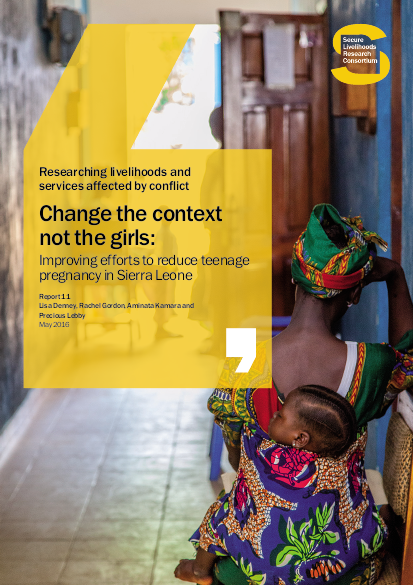
Concerns about significant increases in Sierra Leone’s already high rates of teenage pregnancy during the Ebola crisis have led to redoubled efforts among policy-makers and development practitioners to address this problem. The startling health and education impacts on teenage girls -twice as many mothers aged 15-19 die in childbirth compared to those over 20 while teen pregnancy is one of the leading causes of school dropouts - underline the importance of these efforts. The central argument of this report is that common programming approaches focus overwhelming on girls, rather than the wider context which shapes girls’ actions. This approach ignores the different types of sex through which girls are getting pregnant, assumes knowledge promotion can lead to behaviour change and overlooks the justice and socio-economic components of the problem. If the Government of Sierra Leone’s renewed National Strategy for the Reduction of Teenage Pregnancy is to succeed, a more contextually tailored approach is needed. To that end, six recommendations are proposed.